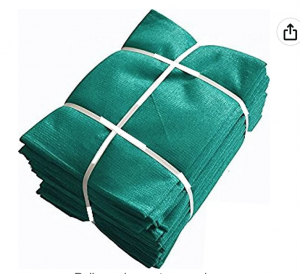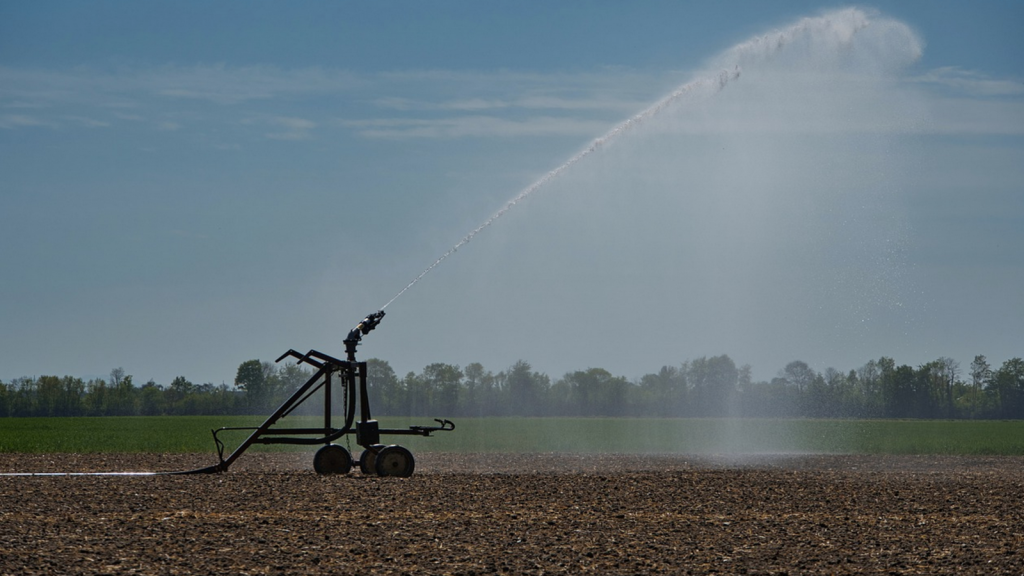It is the use of pumps, pipes, spray guns and gravity to supply water to the fields. It is commonly practiced in areas where there is little, irregular or no rainfall at all. Furthermore it helps to grow crops and improve vegetation in dry areas during drought. Some of the common forms of irrigation include
Surface irrigation
By far the most common form of irrigation where by water is applied and distributed by gravity which makes it flexible and easy to manage and can be put in place with minimal capital. In addition it is less affected by climate. However it less efficient in applying water than sprinkler or trickle system and more importantly labor intensive.
The moving water requires quality soil to prevent unnecessary runoff. Equally during the hot season ensure that irrigation of crops is not done during the day but early in the morning or at night in order to avoid evaporation.
Drip irrigation
Evidently, it is the most efficient water and nutrients delivery system for growing crops. Water is supplied precisely and directly to the crop through small pipes with outlets (emitters) under low pressure. This design reduces soil erosion, water wastage, prevent evaporation. Besides, it helps prevent weeds, pests and diseases. In any case the crop performance and production are always high. A crop like
rice prefers drip irrigation.
On the other hand it is difficult to implement if the user has little or no knowledge about the system (operational and maintenance). Certainly the emitters are sensitive to clogging and the system is expensive.
Sprinkler
Water is sprayed over a large area of the field. Despite this, water evaporates in air before reaching the ground. Indeed, it is not an ideal irrigation system in hot and windy locations. It is suitable for undulated land, easy to operate and efficient due to uniform distribution. Nevertheless high power is required for sprinkler to operate optimally. More so, its initial cost is prohibitive and crucially it losses water due to evaporation. Last but not least its pattern is easily distorted by wind.
Advantages
- Since agriculture is always affected by low, heavy and irregular rainfall, irrigation ensures uninterrupted agriculture.
- With higher yields being realized, obviously increased income is achieved
- Constant water supply, constant moisture hence guaranteed seed growth
- Cropping can be done all year round
Disadvantages
- Overflow of water increases chances of diseases
- Initial high cost
- Might not suit all crops
- Professional advice is required when it comes to installation and maintenance.
These are innovations in the agricultural sector for better climate control, safer and healthier food production. They are woven or knitted allowing a certain amount of sunlight through to the crop. which makes them protect plants from,
Wind, Rain, Hail, Frost, Snow, Birds, Insects
Nets also assist with retaining of water enabling crop to grow without water stress loss.
Types of shade nets
These are innovations in the agricultural sector for better climate control, safer and healthier food production for shade loving crops. They are woven or knitted allowing a certain amount of sunlight through to the crop. In addition, they protect plants from Wind, Rain, Hail, Frost, Snow, Birds, Insects
Nets also assist with retaining water which enables crop to grow without water stress loss.
Types of shade nets
Depending on the amount of shade required, the available types are
30%
55%
75%,
90%,

The colors of the nets are mostly black and green. The green nets do blend well with the crop. Despite any preference, the color of the net has no effect on its functionality or shading ability.
Dam Liners
Dam liners vary depending on the gauge. The usage and location will determine the gauge to be used.
For example, fish ponds, silage storage and water harvesting will require different gauges. A liner has a life span of between 3 to 10 years depending on the gauge.
Propagation Sets
Examples of propagation sets include seedling trays, planting bags and planting pots. Obviously they are substituting seed beds as they guarantee 98% germination rate.
Mary Muchai, a nominee of many awards, is the co-founder of Aqua Hub, a company which deals in irrigation systems, shade nets, dam liners and propagation sets.
